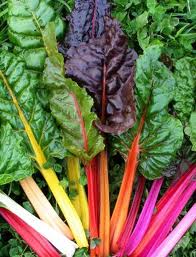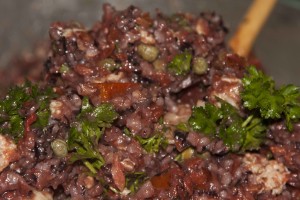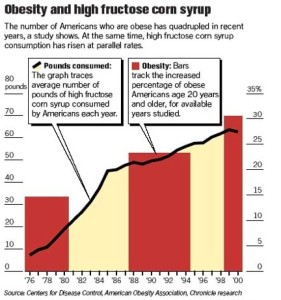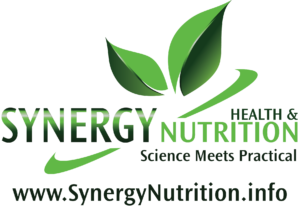Simple nutrition steps–Big health returns.
One of my clients recently asked me to help improve her family’s health through diet—she talked about getting off the processed and starchy by home-cooking whole-grain pasta with Alfredo. OK, so what exactly is a healthy diet?
Well, the nutrition truth basics are pretty simple: Everyone needs a mix of proteins, fats, and some (but not too much) carbohydrates from the right sources. We need enough vitamins and minerals. We need nourishing activities in our lives.
But there are many long-held nutrition myths. Crowding out the false data and replacing it with nutrition truths may not be what General Mills or even your past habits want you to know—both corporate programming and “emotional” food ties can make doing the right thing tricky.
While certain foods are required for good health—especially vegetables, some fats, fruits, nuts, and more—that doesn’t mean there’s one single “healthy diet” for every person for all time. Cutting edge nutritional science shows that we are each “bio-individual”; that eating patterns which promote good health will vary from person to person, will change with the seasons, during times of stress, during pleasure, and are especially different if we are maintaining good health or handling disease (dis-ease: “dis-” = apart, away, not + aise Old French for comfort).
Are there foods products you never should eat? Absolutely. But what is correct for one may not be correct for others. This is why I help people determine their own, personal, healthy eating styles and needs.
There is definitely research to suggest that certain foods should be eliminated—like trans-fats (think margarine). There is pretty good consensus that eating sugar and sugar-sources like grains regularly (and to the exclusion of healthier choices) can cause life-threatening illnesses such as heart disease, high blood pressure, diabetes, and even some cancers. It’s really too bad when people seek out medications to solve imbalances caused by poor eating choices—it also usually doesn’t work.
Healthy eating can be an easy and delicious way of life if you understanding nourishing patterns and the food choices that go into them.
These 7 key truths to healthy eating work for everyone. Do them in order. Use Nutrition Truths #2-3 to help you achieve Truth #1. Ready for your custom program? Contact me for a free individualized consultation.
To rebalance your health, take these steps:
Nutrition Truth #1—good-bye added sugar. Whether it’s white granulated sugar, organic turbinado sugar, brown sugar, high- fructose corn syrup, corn sugar, cane sugar juice, agave or honey: sugar contains almost no nutrients and is pure carbohydrate. When you eat a lot of sugar you are filling up on empty calories, causing your blood sugar to rise and fall like a roller coaster, and can keep you from eating foods that with important nutrients and fiber. Living raw honey and real maple syrup may be the only exceptions, but use these sparingly. The average American eats 3lbs of sugar every week while our ancestors had less than that in all year.
Soft drinks and other sugar-sweetened beverages are the primary source of dietary sugar and the #1 cause of weight gain. In fact, just one 12-ounce can of a typical sweetened beverage a day can add on 15 pounds in a year. And it’s not only because the drinks add calories; elevating blood sugar tells the body to store fuel as fat.
Nutrition Truth #2—eat fats to lose fat. Unfortunately, the much-maligned fats are vital for everything from youthful skin and hormone balance, digestive health, handling sugar cravings, to high IQ, memory… Bottom line: your body needs them. The idea that saturated fat causes heart disease came from poor science. It may be true that the toxic chemicals like antibiotics and hormones (that we know are stored in the fat of animals) may contribute to poor health. So definitely buy pastured, free-range, and wild caught only. But eliminating fat because cheaper commercial animals contain toxic chemicals is missing the point and may be causing the biggest disease problem: chronic inflammation. Add back the real butter from pastured cows only (never use margarine), eat plenty of cold water fish (never farmed), lots of olive oil (never canola, corn, soy) and nuts. Your body will love you.
 Nutrition Truth #3—get your greens. Need a reason? Here’s three: 1. Greens are low-carb, low-cal, and gluten-free (does that cover enough buzz words?). 2. Greens are the healthiest, most nourishing food on the planet with just about every vitamin and nutrient. 3. Your mother (and I!) told you to! 😉
Nutrition Truth #3—get your greens. Need a reason? Here’s three: 1. Greens are low-carb, low-cal, and gluten-free (does that cover enough buzz words?). 2. Greens are the healthiest, most nourishing food on the planet with just about every vitamin and nutrient. 3. Your mother (and I!) told you to! 😉
Nutrition Truth #4—banish baked sweets. Cookies, snack cakes, doughnuts, pastries, and many other treats are hard to pass up, but packed with processed carbohydrates (flours), added sugar, and in the case of commercial versions unhealthy seed oil fats, your body is overwhelmed with sugar and toxic substances. In fact, even one “transgression” may affect health balance for two months—just say no.
 Nutrition Truth #5—wipe out white carbohydrates. Now we get to the non-obvious: bread, pasta, white potatoes, rice, or pancakes—there are many non-grain versions on this site. Nutty-flavored “forbidden” rice, almond or buckwheat pancakes (technically, buckwheat is not a grain and it is a balanced source of proteins / amino acids), or Kasha Tabbouleh there are
Nutrition Truth #5—wipe out white carbohydrates. Now we get to the non-obvious: bread, pasta, white potatoes, rice, or pancakes—there are many non-grain versions on this site. Nutty-flavored “forbidden” rice, almond or buckwheat pancakes (technically, buckwheat is not a grain and it is a balanced source of proteins / amino acids), or Kasha Tabbouleh there are  really many option.
really many option.
Nutrition Truth #6—prevent aging with cholesterol. Forcing your cholesterol below 200? Or more lately 180? 160? Despite the medical community mantra, a 2013 compilation of research shows:
Even though they have been around for over 15 years, statin drugs have never been shown to prolong lives.
1. There is no reason for taking a statin drug if you have not had a cardiac event.
2. If you are a man and have had a cardiac event, taking a statin drug at best gives you a 1-5% reduction in preventing a non-fatal heart attack—and it definitely has the side effect of death, alzheimers, higher risk of cancer, and more
3. In women there are no solid studies that demonstrate that it is beneficial to take a statin drug for any purpose.
And here’s the big one:
4. higher cholesterol and LDL-cholesterol is associated with lower death rates. That’s right, both men and women aged 50+ who had cholesterol below 190 were more likely to die. Higher cholesterol, up to about 308, had a 33% lower death rate. Above 308 showed detrimental health.
The best source of cholesterol is from our diet and if we don’t get dietary cholesterol, we overwork our liver. So forget the low-cholesterol fad foods (that are mostly grains and sugars anyway) and definitely get off those statins.
Nutrition Truth #7—dis the dairy. Ice cream, whole milk, and cheese increase your risk of health problems, notably heart disease, not because of their saturated fat (as you’ve been told) but because the commercial dairy industry uses unhealthy practices in raising dairy animals. European and US law allows up to 400,000 and up to 750,000 cells of bacteria per cubic centimeter (about 0.5 inch) of milk and most of these are strep, staph, and other unwanted bugs from unhealthy animals. Sure, they are pasteurized dead (mostly), but the body still recognizes them and still becomes congested, achey, and all the other symptoms to kill infections. Raw milk from pastured (healthy) cows has been shown to contain a better balance of beneficial bacteria and a better healthy fat distribution without the antibiotics and hormones used in commercial dairy.
Want a hand? Need help sorting through the maze of corporate-interest “truths”? I am currently taking a select number of clients while I finish my integrated nutrition certification. Please contact me here and I’m excited to help you on your journey:








